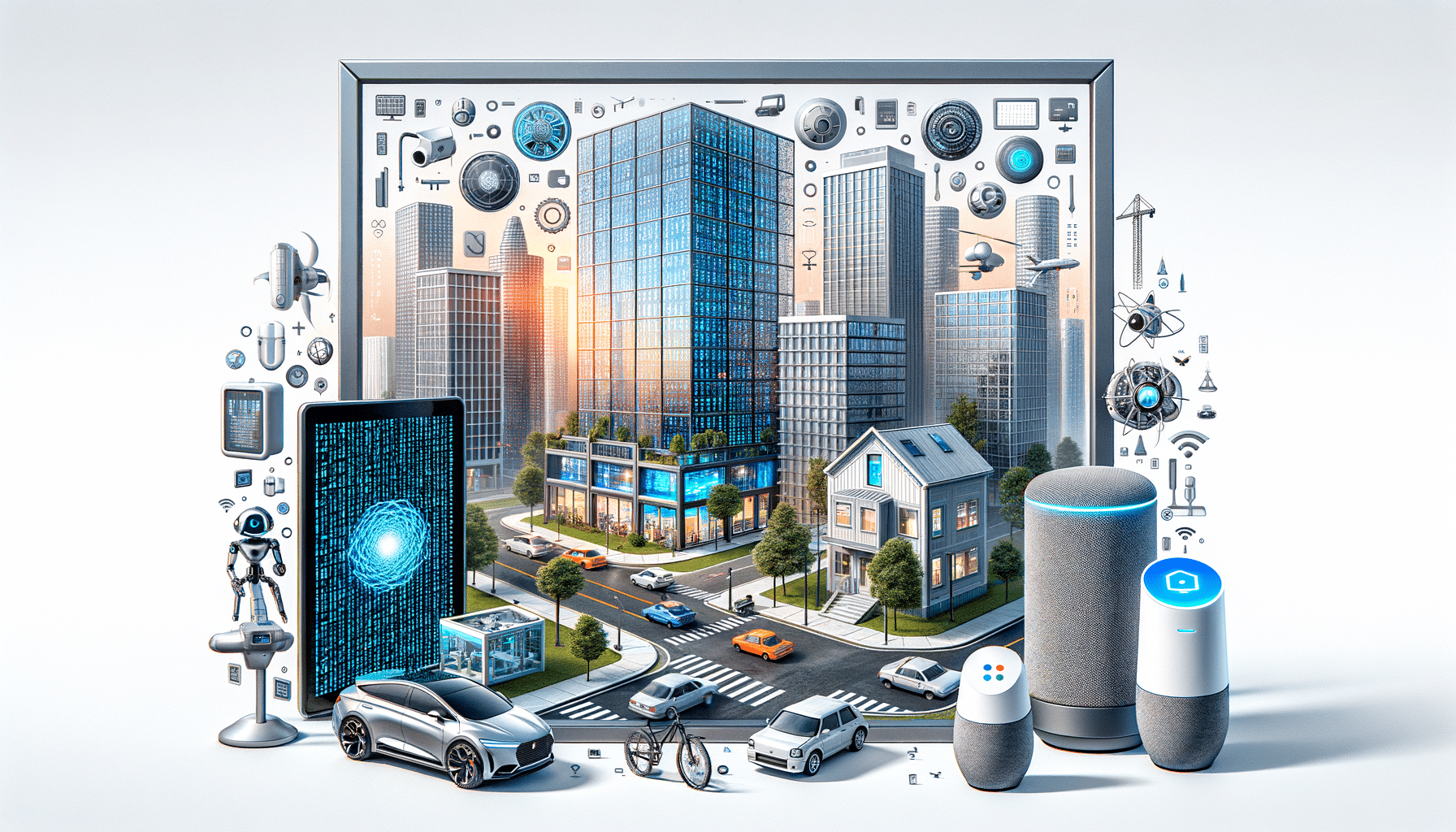
Unlocking Opportunities: Big Data and IoT for SMEs
The Rise of Big Data and IoT in Today’s Business Landscape
In the modern business world, the digital transformation has become a key driver of innovation and efficiency. Among the technologies leading this transformation are Big Data and the Internet of Things (IoT). While these technologies are often associated with large corporations, small and medium-sized enterprises (SMEs) can also leverage them to gain competitive advantages. Big Data refers to the vast volumes of data generated every second, while IoT involves the network of interconnected devices that communicate and exchange data. Together, they offer SMEs unprecedented opportunities to enhance decision-making, improve customer experiences, and streamline operations.
SMEs can utilize Big Data to analyze customer behavior, market trends, and operational efficiencies. This data-driven approach enables businesses to make informed decisions that can lead to better outcomes. On the other hand, IoT allows SMEs to automate processes, reduce costs, and increase productivity by connecting devices and systems. The integration of these technologies can lead to significant improvements in various aspects of business operations, from supply chain management to customer service.
Moreover, the accessibility of cloud-based solutions has made it easier for SMEs to adopt Big Data and IoT technologies without the need for substantial upfront investments. These technologies, once considered the domain of big players, are now within reach of smaller businesses, offering them the tools they need to compete in a rapidly changing market.
Harnessing Big Data for Strategic Decision-Making
Big Data offers SMEs the capability to transform raw data into actionable insights. By analyzing data from various sources, such as social media, customer feedback, and sales transactions, businesses can identify patterns and trends that inform strategic decisions. For example, an SME can use data analytics to understand customer preferences and tailor their products or services accordingly. This personalized approach not only enhances customer satisfaction but also drives loyalty and retention.
Furthermore, Big Data analytics can help SMEs optimize their marketing efforts. By understanding which channels and messages resonate most with their target audience, businesses can allocate resources more effectively, leading to higher returns on investment. Additionally, predictive analytics can forecast future trends, enabling SMEs to proactively adjust their strategies and stay ahead of the competition.
Another significant advantage of Big Data is its ability to streamline operations. By analyzing operational data, SMEs can identify inefficiencies and areas for improvement. This can lead to cost savings and increased productivity, ultimately boosting the bottom line. With the right tools and expertise, SMEs can turn Big Data into a powerful ally in their quest for growth and success.
Leveraging IoT for Operational Efficiency
The Internet of Things (IoT) is revolutionizing the way businesses operate by connecting devices and systems to the internet. For SMEs, IoT offers numerous opportunities to enhance operational efficiency and reduce costs. By automating routine tasks, businesses can free up valuable time and resources, allowing employees to focus on more strategic activities.
One of the most significant benefits of IoT for SMEs is the ability to monitor and control operations in real-time. For instance, IoT-enabled sensors can track inventory levels, equipment performance, and environmental conditions. This real-time data allows businesses to respond quickly to any issues, minimizing downtime and ensuring smooth operations.
Moreover, IoT can improve supply chain management by providing greater visibility and control over the entire process. By tracking shipments and monitoring logistics, SMEs can optimize their supply chain, reduce delays, and improve customer satisfaction. Additionally, IoT can enhance energy management by monitoring and controlling energy consumption, leading to cost savings and a smaller carbon footprint.
As IoT technology continues to evolve, SMEs can expect even more innovative applications that will drive efficiency and productivity. By embracing IoT, small and medium-sized enterprises can position themselves for success in an increasingly connected world.
Overcoming Challenges in Adopting Big Data and IoT
While the benefits of Big Data and IoT are clear, SMEs may face several challenges in adopting these technologies. One of the primary concerns is data security. As businesses collect and store vast amounts of data, they become potential targets for cyberattacks. Ensuring robust cybersecurity measures is essential to protect sensitive information and maintain customer trust.
Another challenge is the lack of expertise and resources. Many SMEs may not have the in-house skills required to effectively implement and manage Big Data and IoT solutions. To overcome this, businesses can partner with technology providers or invest in training programs to build the necessary capabilities.
Additionally, the integration of Big Data and IoT into existing systems can be complex and costly. SMEs need to carefully assess their current infrastructure and plan for a seamless transition. This may involve upgrading hardware, software, and network capabilities to support the new technologies.
Despite these challenges, the potential rewards of Big Data and IoT adoption far outweigh the risks. By addressing these obstacles head-on, SMEs can unlock new opportunities for growth and innovation.
Real-World Applications and Success Stories
Many SMEs have already begun to reap the benefits of Big Data and IoT, setting inspiring examples for others to follow. For instance, a small retail business can use IoT sensors to track foot traffic and optimize store layouts, leading to increased sales and improved customer experiences. Similarly, a manufacturing SME might implement IoT-enabled machinery to monitor equipment health and predict maintenance needs, reducing downtime and increasing efficiency.
In the agricultural sector, SMEs can leverage IoT devices to monitor soil conditions, weather patterns, and crop health. This data-driven approach allows farmers to make informed decisions, optimize resource usage, and increase yields. Such innovations not only improve profitability but also contribute to sustainable farming practices.
Another compelling example is the use of Big Data analytics in the hospitality industry. SMEs in this sector can analyze customer feedback and preferences to tailor their services and enhance guest experiences. By understanding what guests value most, businesses can create personalized offerings that set them apart from competitors.
These real-world applications demonstrate the transformative potential of Big Data and IoT for SMEs. By embracing these technologies, small and medium-sized enterprises can drive innovation, improve efficiency, and achieve sustainable growth.


